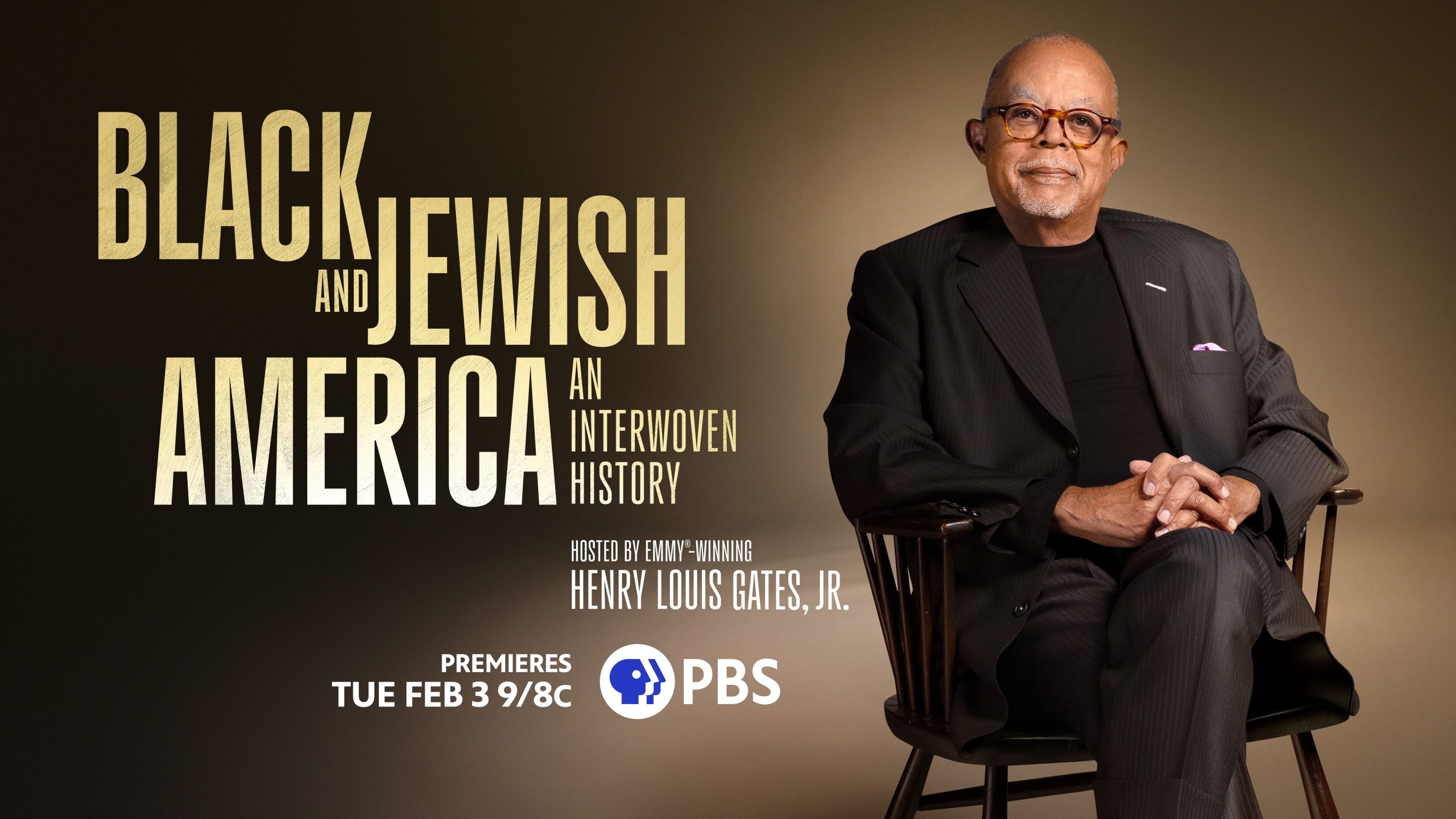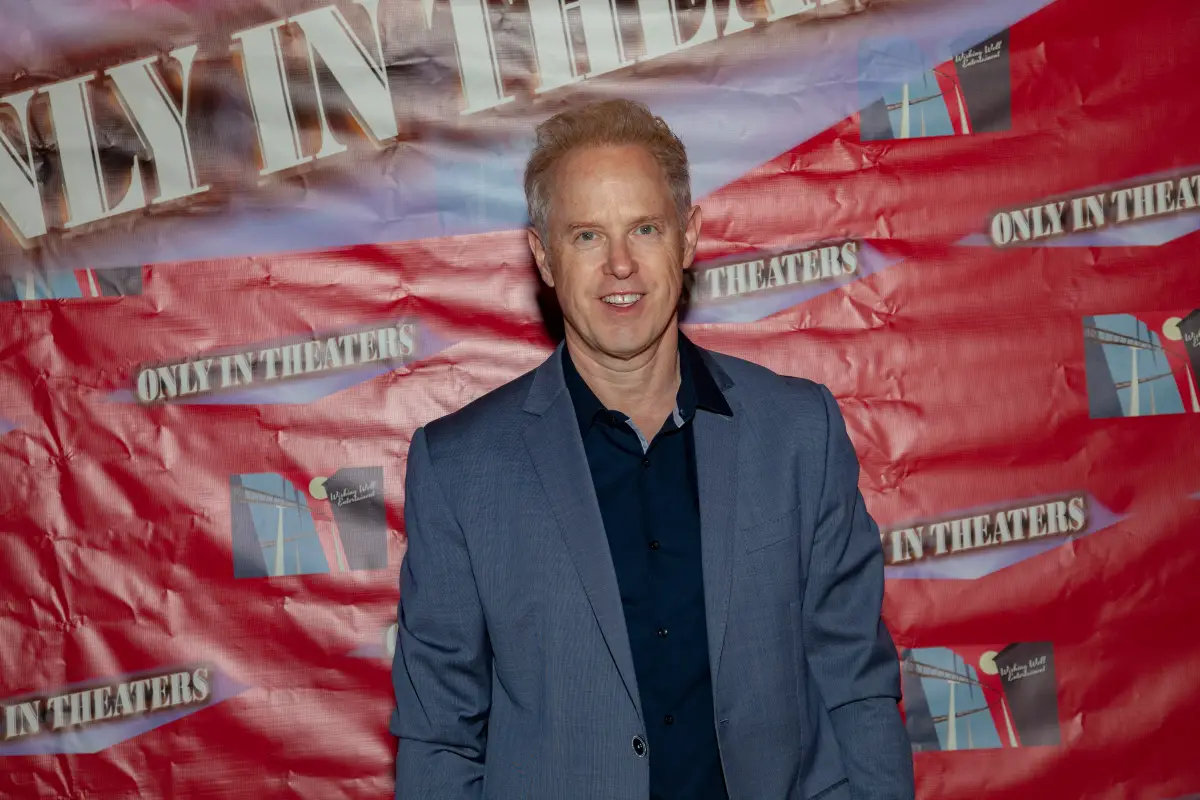
Raphael Sbarge spoke with Solzy at the Movies about Only In Theaters, a recent documentary about the Laemmle Theatres family chain.
The film isn’t just about the Laemmle family but the American Dream. As I said in my interview with Raphael, it’s not lost on me that the chain might not even exist without Carl Laemmle‘s efforts to save Jews from the Holocaust. The Universal Pictures founder rescued some 350 Jews from Nazi Germany. You can learn more about him by watching James L. Freedman’s superb documentary, currently streaming on ChaiFlicks. Anyway, Max, Kurt, and Alyse Laemmle made their way to the United States. Of course, Max and Kurt worked for Universal before starting up Laemmle Theatres. Operations were eventually handed down to Max’s son Robert Laemmle, and today, Robert’s son, Greg Laemmle, runs the place. It’s been a family business and a part of Hollywood royalty for a number of generations. Here’s to many more generations to come!
Following the world premiere at the Santa Barbara Film Festival, Only In Theaters would later open at the Laemmle chain in LA before playing in other markets across the US and around the globe. I initially spoke with the actor/documentary filmmaker ahead of the LA opening. Unfortunately, there were some technical difficulties and the interview didn’t get recorded. A few weeks ago, Raphael Sbarge reached out to me and offered to re-do the interview. We went pretty long–to give you an idea, the following runs some eight pages on Microsoft Word!
Raphael Sbarge also directs the upcoming 10 Days in Watts, premiering February 12 and 19 on KCET. All four 30-minute episodes will broadcast in a marathon February 23 on PBS SoCal. It will be available to stream on the PBS app, KCET, and PBS SoCal.
Only In Theaters is currently playing in theaters. Check the film’s website to find out when it’s coming to your town.
Having been a fan of your work on Once Upon a Time as well as this documentary, Only in Theaters, it’s so nice to talk with you
Raphael Sbarge: Thank you, Danielle Thank you. Thank you.
What was the genesis behind making Only in Theaters?
Raphael Sbarge: The simple answer is, I was living in LA at the time and I had made some films. As every filmmaker knows, if you wanna show your independent film in Los Angeles, you wanna show it at a Laemmle theater. It’s both the gold standard. There’s so many film festivals that play there but it’s also filmmaker-friendly as it were, I was told. I had a film, I wanted to show it, and I called the Laemmle Theatre and I got Greg Laemmle on the phone, the man above the title, which was sort of shocking.
I then basically explained what I needed and it was very clear that he was interested in making this happen. He was a very good businessman. He wasn’t gonna give it away, but it was personal and that was very meaningful. When you work and slave and crawl through mud and broken glass to make a movie, to actually get to the end, you get to that point where you’re like, I’ve got a movie and I can’t wait to show it. At that point, then everything just feels like a whole other ice face that you have to climb. It’s a whole other level of complicated that you don’t anticipate because you think, well, making the movie is everything. Having a friendly person on the other side, having someone who’s kind of eager and/or receptive or available is incredible, actually.
I was at another Laemmle theater not long after about a year later and there’s this incredible wall. This wall has basically been put together by this wonderful artist named Viva Sullivan and it is really kind of an assembly, really beautifully laid out, and it’s featured in the film. It is essentially recounting of this astounding legacy story, which is the Laemmle family.
As we say in the film, there’s been a Laemmle in the movie business ever since there’s been a movie business. Whether you’ve never been to LA whether you don’t know Laemmle Theatres—if you ask yourself, why should I be interested in Laemmle Theatres? What this legacy story talks about is kind of the original Laemmle that is Carl Laemmle, who was an immigrant German Jew who’d come to America. He was one of the original moguls that came to Hollywood, bought some farmland, and started a little movie company called Universal Pictures. He made about 500 movies, including The Hunchback of Notre Dame, All Quiet on the Western Front, and The Phantom of the Opera, etc.
He discovered people like Valentino and Mryna Loy and, and this young illustrator named Walt Disney. His eye for picking people was astounding. He created this incredible, giant studio, of which then he at some point was no longer a part of, but he had this other story, which was that he was very passionate about his country and his people—h is German citizens from the country that he loved. He was sort of a Schindler of sorts and he sponsored 350 people. He brought them over and they would work at Universal and they would then essentially pay off their room and board as it were and then they would be American citizens.
It was that passion, I guess, that also then helped him bring two actual cousins over. In this case it was Max and Kurt Laemmle. These two Laemmles went about, again, working at Universal and then opening a theater chain. This theater chain and this story and other aspects of it are astounding. Like a little known fact, for example, Carl Lemley went up—when he wanted to make his first movie, he went up against the Edison Trust.
This was in the teens. The Edison Trust was Thomas Edison, who had basically figured out a way to patent all of the technology involved in actually the making of movies. These first movies were Nickelodeons, right. They were astoundingly successful. Carl had saved his pennies, got one and got another and was doing very well and wanted to make one. The Edison Trust sued him and this four and a half foot pugnacious German Jew who basically was like, this is ridiculous. Filmmaking started in Europe. They can’t own movie making. He took it all the way to the Supreme Court and he won. Because he won, what happened then was that essentially independent cinema was born. We have non-Thomas Edison made movies because Carl Laemmle was the person who made that possible, broke through that.
This whole legacy story, this thing about the family and how this is sort of a Hollywood royalty family, I thought would be an interesting movie. I approached Greg and said, what do you think? He said, well, come meet with the family. He introduced me. His dad, Robert, was 85 at the time, and going to work every day. He told me about his great Aunt Alyse, who was 103 and was the widow one of the original brothers (Kurt) who founded the theaters. I said, well, how are they? And he said, they’re great.
I said, Greg, we gotta go, we gotta get them on camera. We gotta do whatever we can to kind of capture this, because this is a special moment here. Without really even honestly knowing where the story was going to go yet, we got interviews with both of them and about 10 other people. I was sitting with that and trying to dissect what might be next when I got a call and from Greg and then this whole series of other events happened. We filmed this for over two and a half years. It wasn’t obviously every day, but we continued to stay with it and track it for two and a half years.
Ultimately, the legacy story is a part of this film but it is a film about a Jewish immigrant family who escaped from the Holocaust and has left this astounding connectivity right now to the origins of Hollywood. When you play at a Laemmle Theatre, you can’t help but feel this amazing tie back to the origins of this art form and how it obviously exploded from when Carl started Universal. That’s the origin. That’s the genesis. It very much started from this idea of what a cool family.
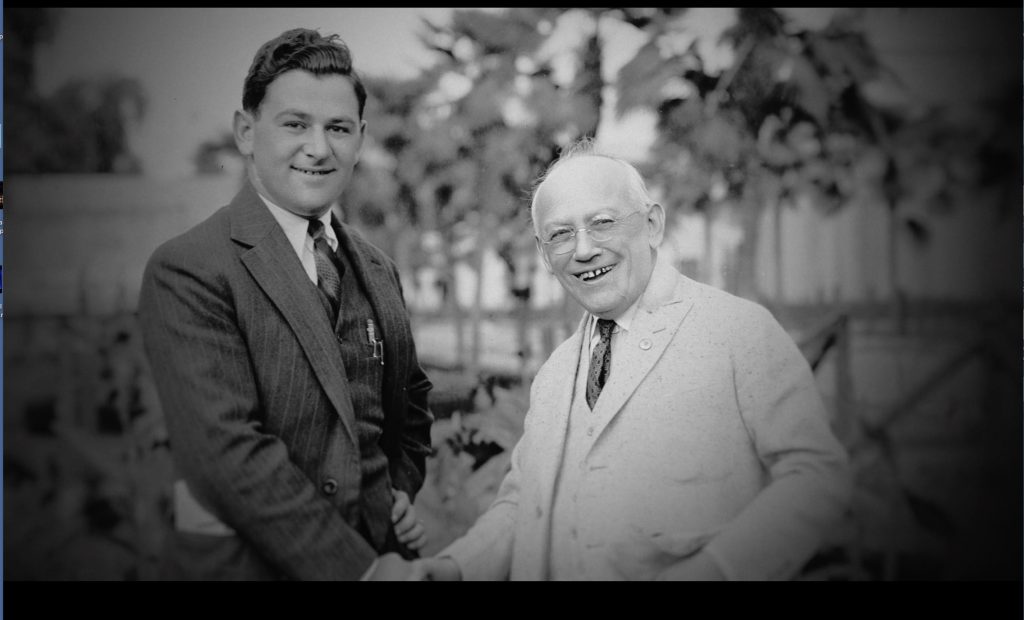
It isn’t lost on me that without Carl’s efforts, we might not even be having this conversation right now.
Raphael Sbarge: Exactly. It’s hard to even fathom. It’s like a, Wow! And the significance of that. I mean Thomas Edison was interested in the technology. He was interested in the money that he could make from selling the technology. He wasn’t interested in promoting actors. He didn’t wanna give actors an opportunity to actually have that kind of power. He just put the actors in and it just was all about the movie. That was what he was selling. Carl had this vision of, No, no, you promote the actors because then people wanna come back and see them and they’ll buy more tickets. He was the first one to figure out that you could actually create tours around the studio and people would come for that. He had some astounding vision that we’ve all basically reaped the benefits of long after even he had left Universal.
What was the most surprising thing that you learned during the making of this film?
Raphael Sbarge: The story really focuses on Greg Laemmle. Greg Laemmle, being the grandson of one of the two founders and this moment that we find him in of great, challenging difficulties and at times, maybe even insurmountable obstacles. We followed Greg over what is arguably the most difficult 24 months of the Laemmle’s 85 year history. What shines through—I mean, to say it’s a surprise is just that it literally emerged and emerged and emerged and then became bright neon, which is just the integrity, conviction, and the sense of purpose and mission that Greg and this family have about film, the art of film, the filmmakers who make them, the audiences who love them, and a commitment to that as a cultural institution. I was astounded by Greg’s strength of character and his determination, just sort of trying to figure out a way to make it through and he participated fully.
There’s a level of intimacy in our interviews that is remarkable. I’ve been an actor. I’m sensitive to what it’s like to be in front of a camera. I’ve spent a lot of my life doing that. But certainly, when I conduct my interviews, I’m very sensitive to that. But at the same time, it wouldn’t have been as kind of poignant or meaningful had it not been for Greg’s really engagement in this. Greg’s seen a lot of documentaries and he understands that a documentary really means that you’re participating fully in it. That is what he did. He is remarkably unselfconscious as a subject. There’s very little that we didn’t have access to. While he’s the subject of a documentary, that it is a family business that he then runs, he had no editorial control on this. The first time that Greg ever saw the movie was publicly at the Santa Barbara Film Festival when we premiered, which is, again, astounding to say, okay, here it is, we’re opening the doors. You have full access. Here’s the family images that you can use and family film. We found some incredible whole movies of Alyse at her wedding, that Carl Laemmle was at, etc.
And then go tell the story you wanna tell and we did. He’s spoken about how difficult it was to watch it the first few times—very complicated. After all, to see ourselves on camera is one thing but to see ourselves during some of the worst times is particularly challenging. I think in this case, he has come to understand, because the feedback he’s gotten, how personally he is, and what he went through has resonated with many other people.
Again, whether you know the Laemmle Theatres or not, you might have an art house cinema in your city, you might have a movie chain in your city, or you might just be familiar with a family business, whether it be your family business or others, there are themes that emerged from this and that I hoped as we traveled through this—despite the fact that remarkable people spoke to us. Ava DuVernay, James Ivory, Cameron Crowe—this was always about a family and the family was their sense of mission and their sense of purpose and their sense of caring about the movie experience was surprising, overwhelming, and at times, heroic.
I don’t how to put it any other way. Greg and I, we passed back and forth because I tell him I think it’s a hero’s journey and he thinks he’s a protagonist. I believe that Greg really passed a thousand Herculean tests and came to the other side. I guess you could see it both ways.
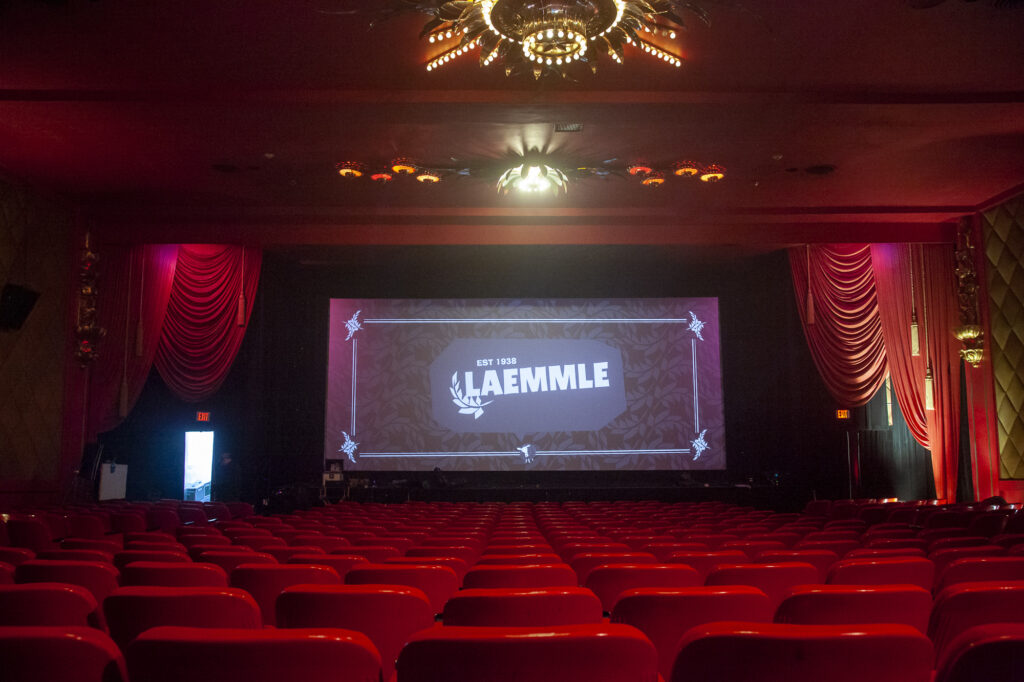
In watching the film, I found it to be a real reminder of just how much streaming has hurt the independent art house theaters and theaters in general.
Raphael Sbarge: Streaming is obviously hurting art houses and theaters but that’s not all. There’re other things that are. I’ll talk about that but there’s other things like newspapers who used to review movies and don’t. It’s very hard to get reviews in newspapers, I’ve discovered. We got wonderful reviews in New York and LA when we opened in the LA Times and New York Times.
I’m told anecdotally that it’s harder and harder for filmmakers to get noticed, that reviews obviously help. The next thing is the streaming part of this is complex in that it’s not only that streaming is taking some of the best movies out of Sundance. They were plucked out by streamers—notably, the 20 million deal that Netflix made. Well, that’s a movie that could have gone into theaters and could have essentially generated a lot of going back to the theater kind of experience. Some of the potentially dynamic films out of the festivals get scooped up by essentially these subscriber base outlets. That’s one less opportunity for people to come back to the theaters.
But the other thing that’s played into this, of course, is obviously the pandemic. Here we are, year three out and we’ve had some of the highest grossing movies of all time over the past year or so. Avatar most notably, but Spider-Man and Top Gun and The Batman. These are all crazy box office numbers. The fact is that people are coming back for the big movies, but the smaller movies, the smaller independent films—there’re small independent films and then there’s small indie films. I’m a small indie film. The small independent films basically are not getting the audiences that they once had. I believe that part of that is because of people sort of gotten out of the habit of getting off their couch and actually going to see a movie in a theater.
I’ve had some conversations with 20 somethings who are like, well, why would I go to a movie? I’ve got my home sound system. I’ve got my big screen. I’ve got it all here. It’s hard to explain to someone who doesn’t know or remember what going to a movie is actually like, what the experience is really about a movie experience, where you actually get to walk into a piece of real estate that is a big, big, dark room with a 40 or 60 foot screen that is essentially where we are solely focused on that moment. You come into a dark room with strangers, you leave as friends because you’ve all have this shared experience.
It’s like a transportation device as it were. You go into a dark theater and you sit in front of something that’s significantly bigger than you and then we, as an audience, then fall into this window, as it were, and, and get taken away. I don’t care how big your screen is, your phone’s gonna ding. You’re gonna get some kind of a distraction at home. You think, oh, I gotta do those dishes. Oh, maybe I’ll grab a thing. The actual kind of event of going in into a movie theater and then into a movie is not being considered as much as it should be, could be, or was.
That’s what the Laemmles are committed to. That’s what Greg believes in wholeheartedly. Streaming is not gonna go away, right? I mean, the genie’s out of the bottle, as they say. I’m hoping that people will understand how important it is to have that movie experience and that people will come back to this.
There’s a historical reference in the movie where we talk about about how television, when it came along, very much like the internet, and wiped out a lot of theaters. It took about 10 years for the theaters to come back. It’s gonna take some time. I think things are back way up in terms of box office numbers. But in terms of kind of the occurrence of people going to the movies, I’ve had people come see my movie and say, G-d, it’s been the first time in a couple years since I’ve actually gone to a theater and I forgot how much I loved going to the movies and isn’t it great you made a movie that’s a love letter about to going to the movies and that’s what this is about. I am really aghast—this is a story past the headlines, past the so-and-so theaters out of business, or the so-and-so blah, blah blahs facing Chapter 11, through the aperture of a family and in this case, again, a family with this incredible theater legacy—again, theater royalty—being able to reflect what the cost is, what the cost of the convenience is.
What does it mean when you actually go on Amazon and order a pen that you could have walked down the street and bought it at the local store and helped that guy or that family but you’ve had someone come to your house and bring you this thing and drop it off. It’s a convenience, but what do we lose when that store goes out of business and there’s less and less opportunities people to wander out and maybe to get some other things or to browse or to kind of support a neighborhood and a neighborhood business. There’re opportunities to begin thinking about perhaps what we lose when we opt only for convenience.
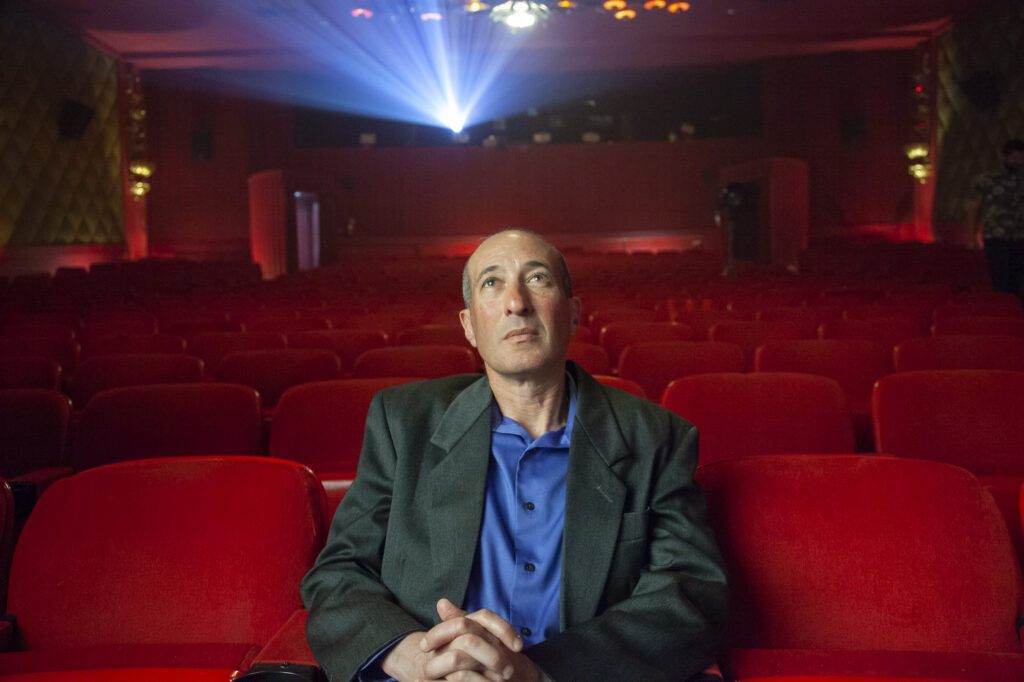
How did it feel to be in the room when Greg was having these hard conversations about potentially selling the chain?
Raphael Sbarge: It was hard. At the point that that began happening, I understood the magnitude of what that meant. It’s not like, oh, hey, we have a house and we’re flipping it. I don’t know what the equivalent would be or, Hey, we’re moving out, we’re finding another place uptown. I don’t know. These were tough conversations and again, he was very open about them. As a filmmaker, I tried to maintain my journalistic integrity and just keep asking questions and not say what I thought—like, Greg, don’t sell! Of course, I didn’t know the numbers. I didn’t know what he was dealing with. I didn’t know what he was seeing. I was also just following the following his lead, right? There is or was an emotional response to gee-whiz, what does that city look like without those theaters or without this family running them?
I put myself in the film. I’d seen a cut of the film and I’d gotten some feedback and I didn’t wanna be in the film because it wasn’t about me. I was encouraged and reminded about all the other directors who had done voiceover and things in movies quite successfully like Werner Herzog, etc.
As I worked on it, I became representative of all the other filmmakers who have a relationship to this theater and all the other filmmakers whose careers have been influenced by the fact that this theater is there. That’s why all these people spoke to me. I mean, Ava DuVernay, she made a movie, won Sundance, basically called the theater just like I had and got Greg on the phone and he gave her some shows. Because of that, she was able to then call New York and say, Hey, I got LA, you’re gonna give me some shows in New York? That’s how she was able to build a career. It was an important leg up.
Cameron Crowe, I’m told, doesn’t do any interviews. He’s very difficult to get. He doesn’t talk to people a lot but he was open to this because the Laemmle Theatres had inspired him to become a filmmaker. That was the case, again, for other filmmakers like Allison Anders and Nicole Holofcener talked about how important the movie theater—Allison Anders said that a movie that she saw at the Royal made her a filmmaker.
Here’s the thing. In the corporate world that we live in, which is all about shareholders, bottom lines, cutting overhead, and corporate movie studios, which used to be independent in that they had enormous power and created these films, have been absorbed into multinational communication companies and so the creative is dictated by whether it be subscribers or whether it be certain measures of success that really are more about numbers.
This family very distinctly has made it a personal mission to support artists and to help them. They won the French Legion of Honor, for example, arguably one of the more august awards from France to people of great status because of what they did for the French New Wave.
There are countless examples of filmmakers who they premiered and we talked about that in the film. In the corporate and at times very cold world that we walk into as artists, the fact that there’d be a family business that’s, again, interested in trying to show great films and bring people out for them, that is really distinct in a world that’s more and more corporate. And again, that felt like that’s the story that emerged here for me as I did this. That seemed more and more important to be reminded of what it means to have a family business., why that matters. What are you getting? What does it mean when a family essentially extends out to you through generations. That’s why we talk about the last family farm, the last bookstore—these are important things because they bring so much to our lives.
There are movies that creative people walk into at a theater that changed the trajectory of their lives and that’s not an overstatement. That’s not hyperbolic. That’s straight up like, oh my G-d, I saw that—that moment was when suddenly something crystallized for me and that’s where it happened. The magnitude of this, the import of this, and the potential of losing it weighed heavy on me. It was a very personally meaningful film to create and to assemble because their core values felt so important to me.
How long was the initial cut?
Raphael Sbarge: I think it was probably two hours, maybe 2:10, something like that. We got it down to 1:34, I think is what it is with credits. I always knew that I didn’t want to lose people and so I tried to keep it lean as possible.
Thirty minutes over is not that much because as you know by asking the question, first cuts can sometimes be five hours, right? Because it’s like, oh my G-d, I need all of them. You have to go through that process of where you’re killing your babies, where you have to kind of sacrifice the things that you’ve grown to love or attached to. I had someone that I worked with, wonderful guy named Evan, who really challenged me to really reconsider it. He was the one that also encouraged me to do the VO but also kind of really try and figure out how to make sure you stay on point. There are, in the course of this movie, so many opportunities where I could have just galloped off towards whatever bright, shiny object.
There’re so many cool stories that we came across and so many amazing things about Carl Laemmle that we didn’t put in the film because ultimately, it’s not about Carl Laemmle. Carl Laemmle starts to set some things up but there’s another documentary about Carl and we wanted to make sure that we focused, in this case, on this family right now at this point in time. This was our way in. The hope was that it would speak, again, to other families outside of Hollywood, that it wasn’t just a Hollywood celebration story. I mean, those are fun. I like those but maybe they’re people that aren’t interested in that but hope was that it could then translate to people outside of major venues, again, who wouldn’t know a Laemmle if they stood up in their soup.
The idea was to try and appeal to the human element in this and then obviously put these art houses around it as a level of stakes.
What’s the reception been as you’ve playing the film across the country?
Raphael Sbarge: Incredible. In some ways, better than I even imagined. You make a film and you put it out because it feels like you get to that point where you say, okay, I’m done. You could go on forever cutting and shooting and at some point, you put the hammer and saw down and you say, okay, the house is done and you go with that.
You put it out in the world and you hope for the best. We played a lot of cities and then we played internationally. We played in Ireland. We played in Bethlehem, PA, in a sort of an abandoned steel town and they were overwhelmed by it.
We’re now in our 50th city around the country. We’re playing all over the country and we’ve done very well critically. We’re a hundred percent on Rotten tomatoes, which is fantastic. We’re playing in theaters. I made a film called Only in Theaters and I couldn’t have it premiere only on streaming. It was all about really being able to make sure that people came to a theater to see it. We’re trying to sort of preserve that theatrical experience as long as we can so that people find it and come out for it.
In New York, we had an incredible response to film, maybe in some ways, even more deeply than LA in some ways just because they may not have known about Laemmle, but they certainly know about their love of cinema and they felt the stakes and they understood what this meant. They certainly emotionally connected to the Jewish family and it’s not a Jewish movie. It certainly plays well to a Jewish audience but I’ve had other people of Muslim descent, Irish descent, or from other non-Jewish family members who’ve spoken about how the family dynamic is so familiar to them. And again, to really witness that journey is powerful.
My aspiration for this is that it continues to play for as long as it can in theaters. It will ultimately be on streaming. I won’t shy away from that as the next hurdle. I’m aware of the fact that that’s probably how more people will find it and will also experience it, even hopefully on their device. Whatever they’re watching it on, I hope it’s maybe a siren call to come back to movies and not just the big movies, the small movies, the intimate movies that actually are more impactful on a 60 foot screen than on a 14-inch device. This 125-year-old art form is really about that space between the screen and the seats. It’s where the magic happens and the magic is, again, the experience of going to the movies. That’s really at the heart of this, I guess, is just sort of reminding people about how much they love going to the movies and inviting them to come back.
Thank you so much.
Raphael Sbarge: Thank you. Thank you.
Only In Theaters is currently playing in theaters.
Please subscribe to Solzy at the Movies on Substack.
